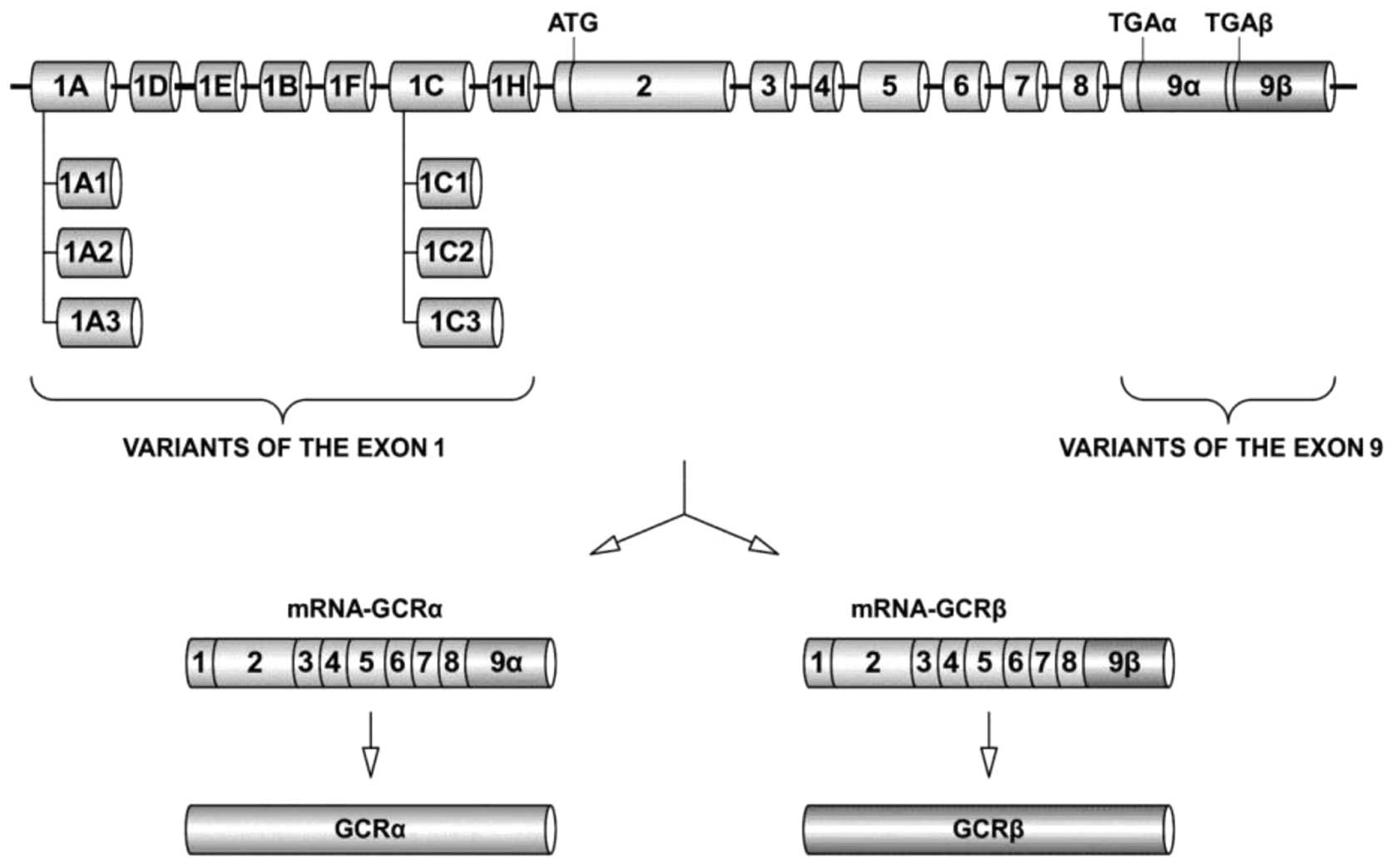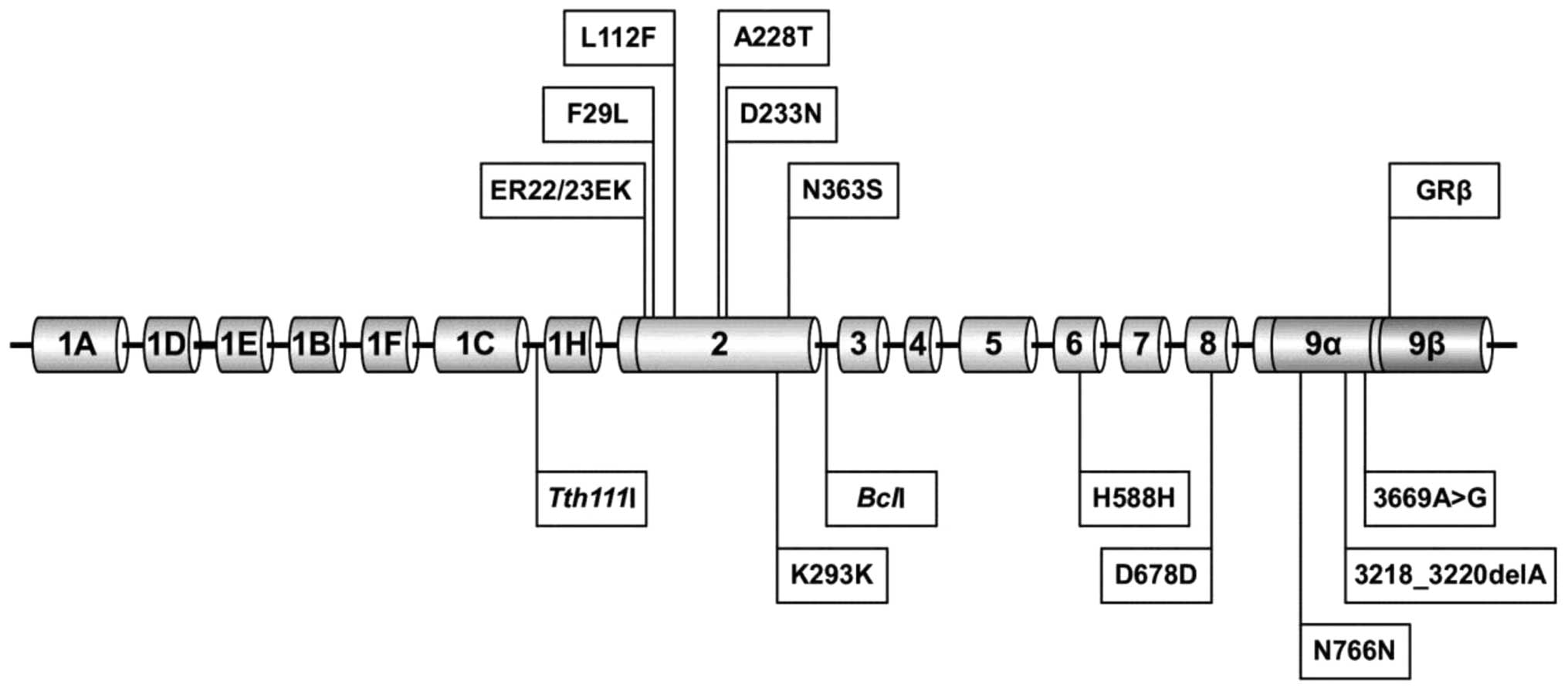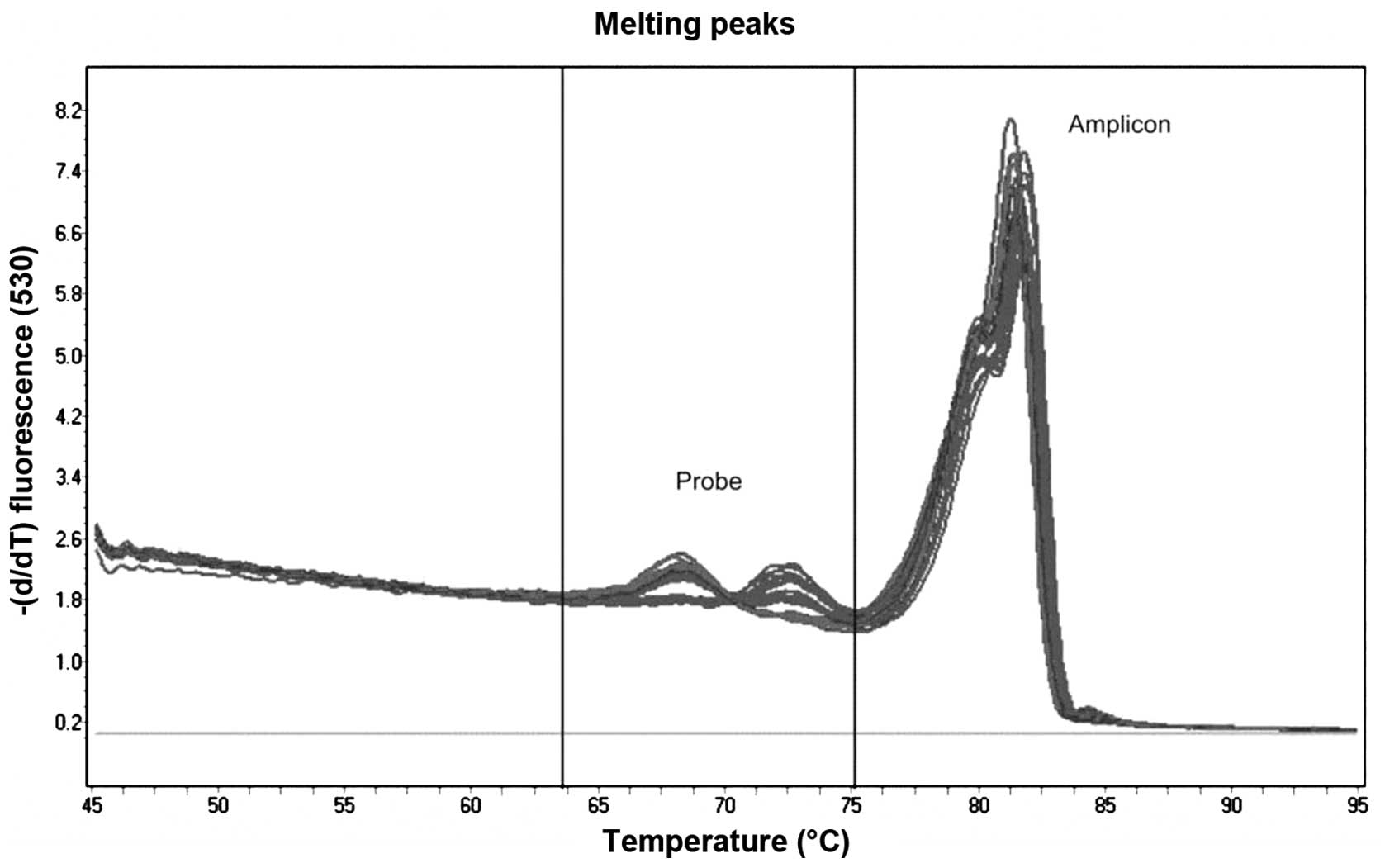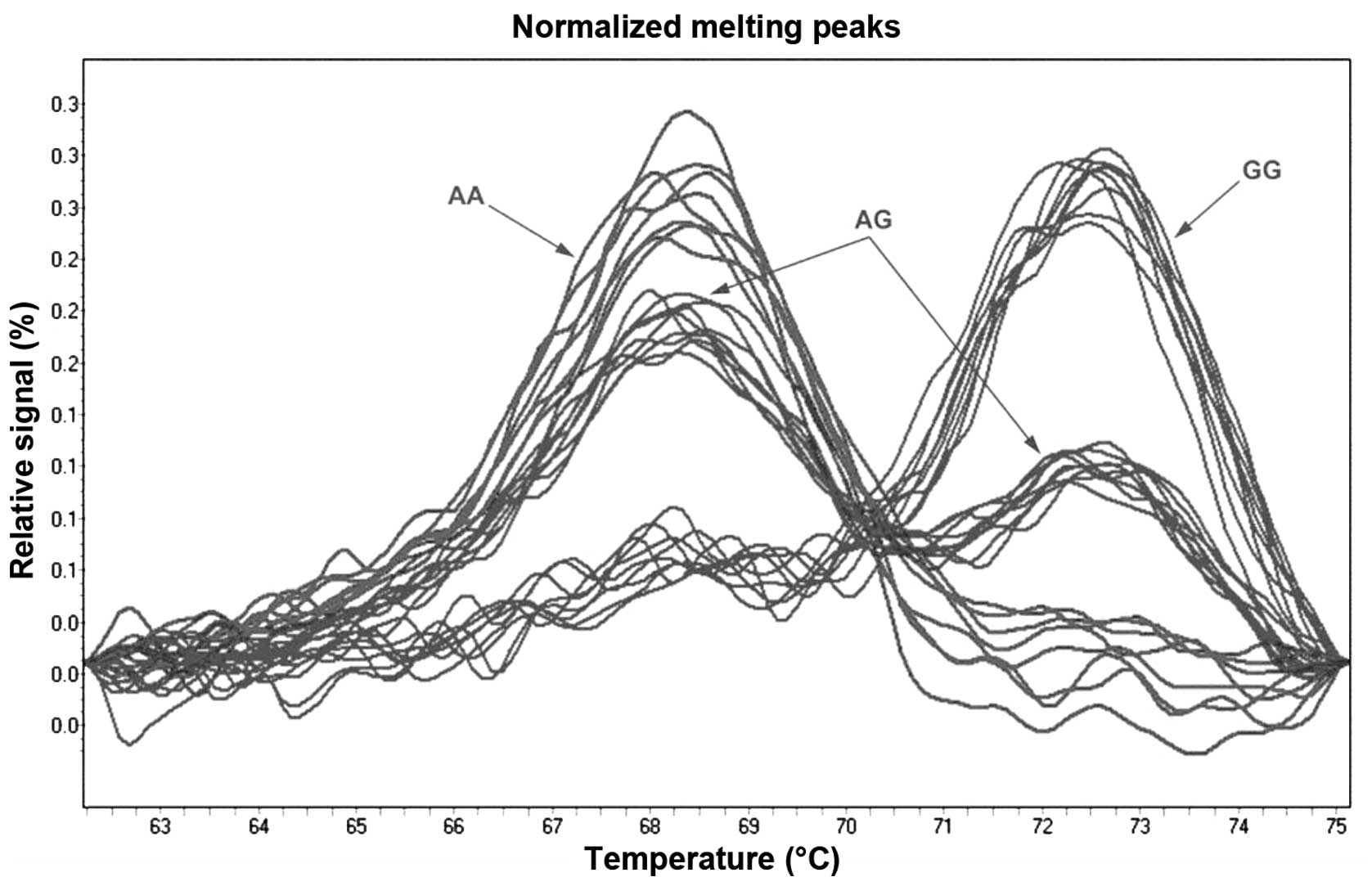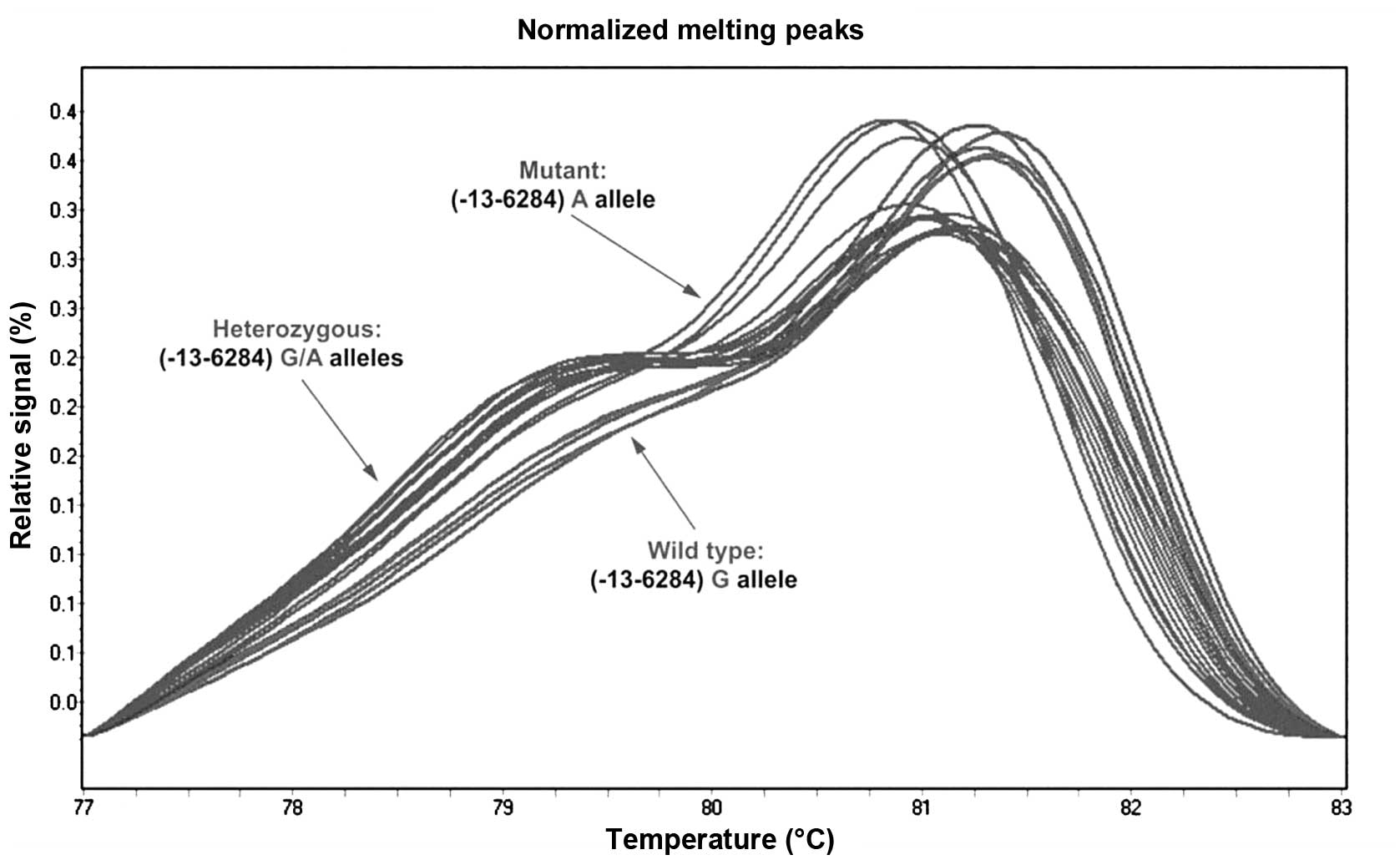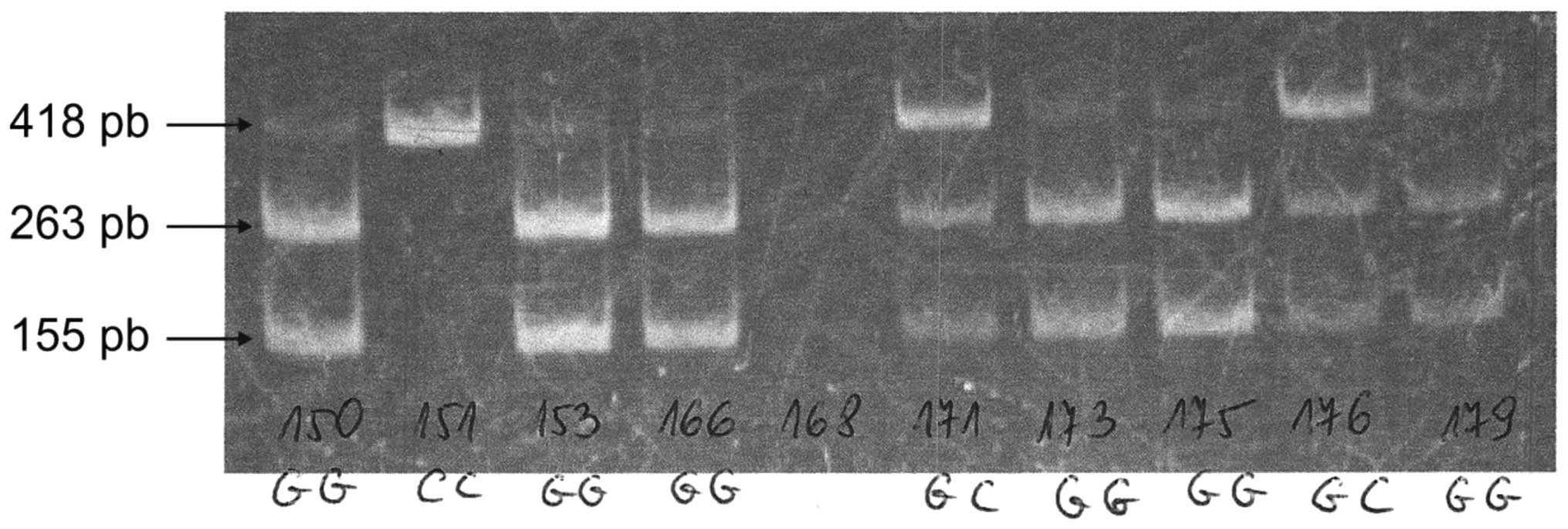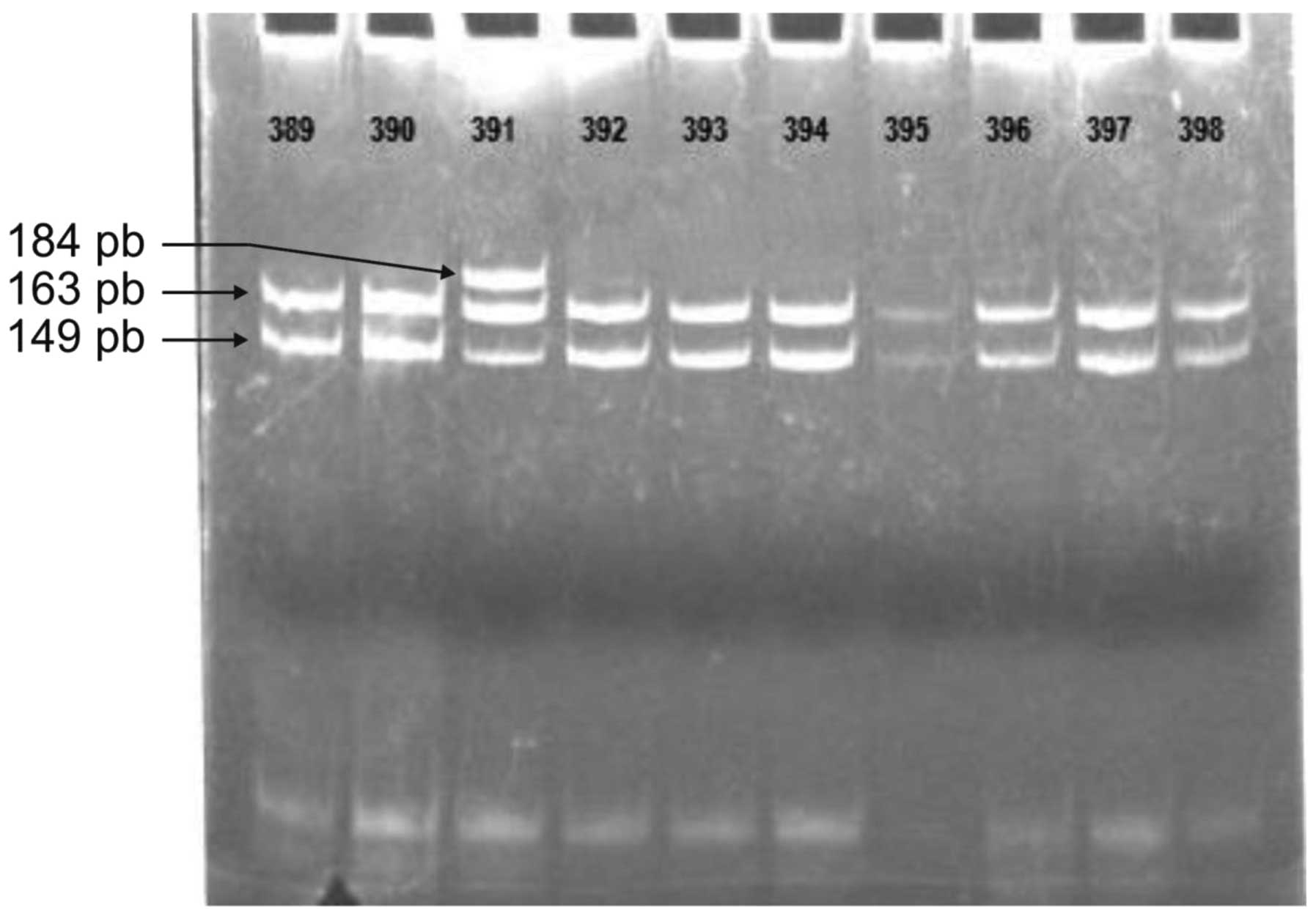|
1.
|
Global Initiative for Asthma 2007: GINA
executive summary. Eur Respir J. 31:143–178. 2008. View Article : Google Scholar
|
|
2.
|
National Institutes of Health: Guidelines
for the Diagnosis and Management of Asthma. National Asthma
Education and Prevention Program (NAEPP) Expert Panel Report 3.
Summary Report 2007. NIH Publication Number 08-5846. National
Institutes of Health, National Heart, Lung and Blood Institute;
Bethesda, MD: 2007
|
|
3.
|
Wenzel S: Asthma: defining of the
persistent adult phenotypes. Lancet. 368:804–813. 2006. View Article : Google Scholar : PubMed/NCBI
|
|
4.
|
Droszcz W: Astma. Wydawnictwo Lekarskie
PZWL; Warsaw: 2007, (In Polish).
|
|
5.
|
Kino T, De Martino M, Charmandari E, et
al: Tissue glucocorticoid resistance/hypersensitivity syndromes. J
Steroid Biochem Mol Biol. 85:457–467. 2003. View Article : Google Scholar : PubMed/NCBI
|
|
6.
|
Derijk R and de Kloet E: Corticosteroid
receptor polymorphisms: determinants of vulnerability and
resilience. Eur J Pharmacol. 583:303–311. 2008. View Article : Google Scholar : PubMed/NCBI
|
|
7.
|
Bamberger C, Bamberger A, de Castro M, et
al: G. Glucocorticoid receptor beta, a potential endogenous
inhibitor of glucocorticoid action in humans. J Clin Invest.
95:2435–2441. 1995. View Article : Google Scholar : PubMed/NCBI
|
|
8.
|
Ito K, Chung K and Adcock I: Update on
glucocorticoid action and resistance. J Allergy Clin Immunol.
117:522–543. 2006. View Article : Google Scholar : PubMed/NCBI
|
|
9.
|
DeRijk R, Schaaf M and de Kloet E:
Glucocorticoid receptor variants: clinical implications. J Steroid
Biochem Mol Biol. 81:103–122. 2002. View Article : Google Scholar : PubMed/NCBI
|
|
10.
|
Grzanka A and Rogala B: Molecular
mechanism of glucocorticoids and difficult asthma. Allerg Asthma
Immunol. 5:247–252. 2000.
|
|
11.
|
Panek M, Pietras T, Antczak A, et al: The
N363S and I559N single nucleotide polymorphisms of the h-GR/NR3C1
gene in patients with bronchial asthma. Int J Mol Med. 30:142–150.
2012.PubMed/NCBI
|
|
12.
|
Adcock IM, Ford P, et al: Steroid
resistance in asthma: mechanisms and treatment options. Curr
Allergy Asthma Rep. 8:171–178. 2008. View Article : Google Scholar : PubMed/NCBI
|
|
13.
|
Barnes P: Molecular mechanisms of
glucocorticoid action in asthma. Pulm Pharmacol Ther. 10:3–19.
1997. View Article : Google Scholar
|
|
14.
|
Panek M, Pietras T, Kupryś-Lipińska I, et
al: The analysis of the factors influencing the development of
glucocorticoid resistance in the etiopathogenesis of severe
bronchial asthma. Postepy Biochem. 56:373–382. 2010.(In
Polish).
|
|
15.
|
Leung D and Bloom J: Update on
glucocorticoid action and resistance. J Allergy Clin Immunol.
111:3–22. 2003. View Article : Google Scholar
|
|
16.
|
Russcher H, Dalm V, de Jong F, et al:
Associations between promoter usage and alternative splicing of the
glucocorticoid receptor gene. J Mol Endocrinol. 38:91–98. 2007.
View Article : Google Scholar : PubMed/NCBI
|
|
17.
|
Van der Velden V: Glucocorticoids:
mechanisms of action and anti-inflammatory potential in asthma.
Mediators Inflamm. 7:229–237. 1998.PubMed/NCBI
|
|
18.
|
Beato M, Chalepakis G, Schauer M, et al:
DNA regulatory elements for steroid hormones. J Steroid Biochem Mol
Biol. 32:737–747. 1989. View Article : Google Scholar : PubMed/NCBI
|
|
19.
|
Thomas M and Chiang C: The general
transcription machinery and general cofactors. Crit Rev Biochem Mol
Biol. 41:105–117. 2006. View Article : Google Scholar : PubMed/NCBI
|
|
20.
|
Smale S and Kadonaga J: The RNA polymerase
II core promoter. Annu Rev Biochem. 72:449–479. 2003. View Article : Google Scholar : PubMed/NCBI
|
|
21.
|
Wu S and Chiang C: TATA-binding
protein-associated factors enhance the recruitment of RNA
polymerase II by transcriptional activators. J Biol Chem.
276:34235–34243. 2001. View Article : Google Scholar : PubMed/NCBI
|
|
22.
|
Bulas M, Trelińska J, Stolarska M, et al:
Association of steroid receptor gene (NR3C1) polymorphism
with clinical course of lymphoproliferative disorders in children –
preliminary results. Onkol Pol. 2:77–81. 2008.(In Polish).
|
|
23.
|
Bulas M, Pierlejewski F and Młynarski W:
Glucocorticosteroid resistance in lymphoproliferative diseases in
children. Przegląd Pediatryczny. 1:57–61. 2009.(In Polish).
|
|
24.
|
Van Rossum E and Lamberts S: Polymorphisms
in the glucocorticoid receptor gene and their associations with
metabolic parameters and body composition. Recent Prog Horm Res.
59:333–357. 2004.PubMed/NCBI
|
|
25.
|
Nicolaides N, Galata Z, Kino T, et al: The
human glucocorticoid receptor: molecular basis of biologic
function. Steroids. 75:1–12. 2010. View Article : Google Scholar : PubMed/NCBI
|
|
26.
|
Bray P and Cotton R: Variations of the
human glucocorticoid receptor gene (NR3C1): pathological and in
vitro mutations and polymorphisms. Hum Mutat. 2003.21:557–568
|
|
27.
|
Mwinyi J, Wenger C, Eloranta J and
Kullak-Ublick G: Glucocorticoid receptor gene haplotype structure
and steroid therapy outcome in IBD patients. World J Gastroenterol.
16:3888–3896. 2010. View Article : Google Scholar : PubMed/NCBI
|
|
28.
|
Van Rossum E, Koper J, van den Beld A, et
al: Identification of the BclI polymorphism in the glucocorticoid
receptor gene: association with sensitivity to glucocorticoids in
vivo and body mass index. Clin Endocrinol. 59:585–592.
2003.PubMed/NCBI
|
|
29.
|
Buemann B, Vohl M, Chagnon M, et al:
Abdominal visceral fat is associated with a BclI restriction
fragment length polymorphism at the glucocorticoid receptor gene
locus. Obes Res. 5:186–192. 1997. View Article : Google Scholar : PubMed/NCBI
|
|
30.
|
Panarelli M, Holloway C, Fraser R, et al:
Glucocorticoid receptor polymorphism, skin vasoconstriction and
other metabolic intermediate phenotypes in normal subjects. J Clin
Endo Met. 83:1846–1852. 1998.
|
|
31.
|
De Iudicibus S, Franca R, Martelossi S, et
al: Molecular mechanism of glucocorticoid resistance in
inflammatory bowel disease. World J Gastroenterol. 17:1095–1108.
2011.PubMed/NCBI
|
|
32.
|
De Lange P, Koper J, Huizenga N, et al:
Differential hormone-dependent transcriptional activation and
repression by naturally occurring human glucocorticoid receptor
variants. Mol Endocrinol. 11:1156–1164. 1997.
|
|
33.
|
Miller M, Hankinson J, Brusasco V, et al:
Standardisation of Spirometry. Eur Respir J. 26:319–338. 2005.
View Article : Google Scholar
|
|
34.
|
Nathan R, Sorkness C, Kosinski M, et al:
T. Development of the test: a survey for assessing asthma control.
J Allergy Clin Immunol. 113:59–65. 2004. View Article : Google Scholar
|
|
35.
|
Dreborg S, Backman A and Bosomba A: Skin
tests used in type I allergy testing. Position paper. Sub-Committee
on Skin Tests of the European Academy of Allergology and Clinical
Immunology. Allergy. 44:1–59. 1989.PubMed/NCBI
|
|
36.
|
Wittwer CT: High-resolution DNA melting
analysis: advancements and limitations. Hum Mutat. 30:857–859.
2009. View Article : Google Scholar : PubMed/NCBI
|
|
37.
|
Vossen RH, Aten E, Roos A, et al:
High-resolution melting analysis (HRMA) – more than just sequence
variant screening. Hum Mutat. 30:860–866. 2009.
|
|
38.
|
Tindall EA, Petersen DC, Woodbridge P, et
al: Assessing high-resolution melt curve analysis for accurate
detection of gene variants in complex DNA fragments. Hum Mutat.
30:876–883. 2009. View Article : Google Scholar : PubMed/NCBI
|
|
39.
|
Lyon E and Wittwer CT: LightCycler
technology in molecular diagnostics. J Mol Diagn. 11:93–101. 2009.
View Article : Google Scholar : PubMed/NCBI
|
|
40.
|
Dobrowolski SF, Gray J, Miller T, et al:
Identifying sequence variants in the human mitochondrial genome
using high-resolution melt (HRM) profiling. Hum Mutat. 30:891–898.
2009. View Article : Google Scholar : PubMed/NCBI
|
|
41.
|
Szabó V, Borgulya G, Filkorn T, et al: The
variant N363S of glucocorticoid receptor in steroid-induced ocular
hypertension in Hungarian patients treated with photorefractive
keratectomy. Mol Vis. 13:659–666. 2007.PubMed/NCBI
|
|
42.
|
Institute of Human Genetics: Case-control
studies. Tests for deviation from Hardy-Weinberg equilibrium and
tests for association. http://ihg.gsf.deuri.
|
|
43.
|
Sasieni PD: From genotypes to genes:
doubling the sample size. Biometrics. 53:1253–1261. 1997.
View Article : Google Scholar : PubMed/NCBI
|
|
44.
|
Weir BS: Statistical Data Analysis II.
Methods for Discrete Population Genetic Data. 2nd edition. Sinauer
Associates., Inc.; Sunderland, MA, USA: pp. 91–140. 1996
|
|
45.
|
R Development Core Team: R: a language and
environment for statistical computing. R Foundation for Statistical
Computing; Vienna: 2011, http://www.R-project.orguri.
|
|
46.
|
Andreasen N and Olsen S: Negative vs.
positive schizophrenia: definition and validation. Arch Gen
Psychiatry. 39:789–794. 1982. View Article : Google Scholar : PubMed/NCBI
|
|
47.
|
Pietras T, Panek M, Tworek D, et al: The
Bcl I single nucleotide polymorphism of the human glucocorticoid
receptor gene h-GR/NR3C1 promoter in patients with bronchial
asthma: pilot study. Mol Biol Rep. 38:3953–3958. 2011. View Article : Google Scholar : PubMed/NCBI
|
|
48.
|
Panek M, Pietras T, Antczak A, et al: The
role of functional single nucleotide polymorphisms of the human
glucocorticoid receptor gene NR3C1 in Polish patients with
bronchial asthma. Mol Biol Rep. 39:4749–4757. 2012. View Article : Google Scholar
|
|
49.
|
Panek M, Pietras T and Kuna P:
Contemporary management of COPD in the view of the new GOLD
guidelines. Terapia. 271:71–77. 2012.
|
|
50.
|
The Global Initiative for Chronic
Obstructive Lung Disease (GOLD): Available from URL: http://http://www.goldcopd.orguri.
|















